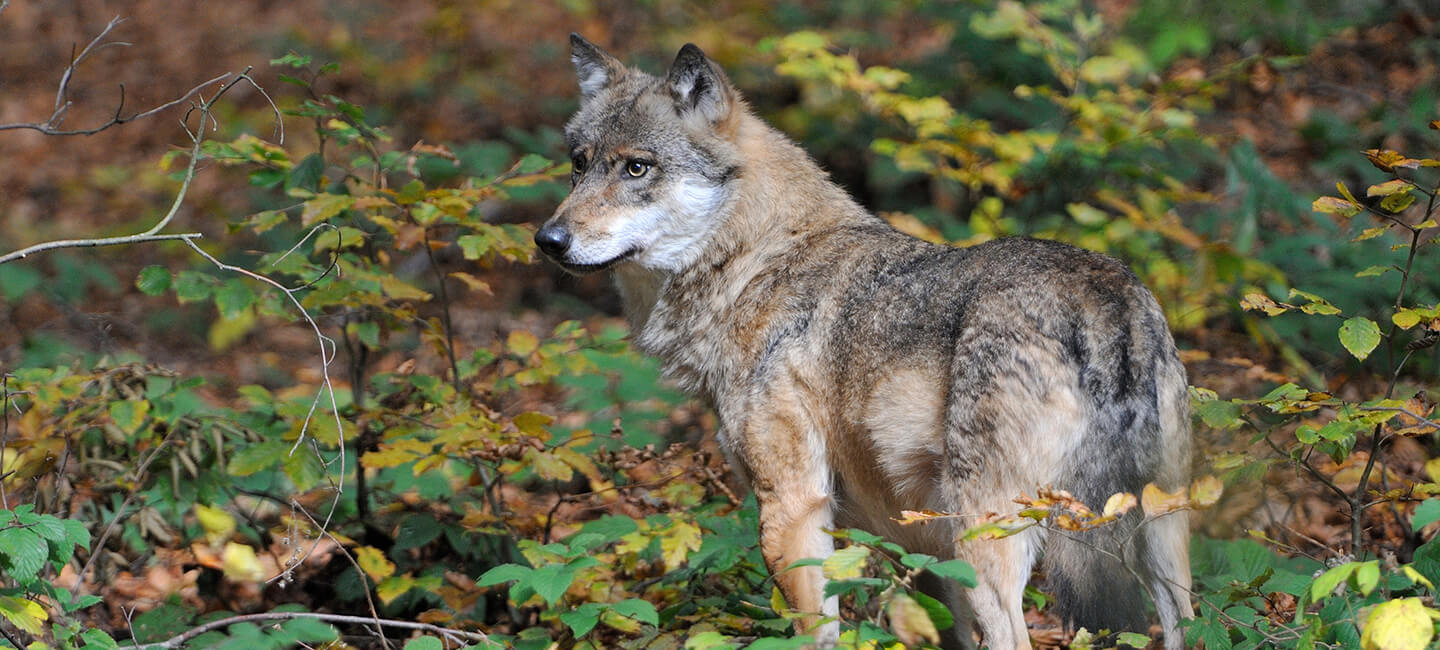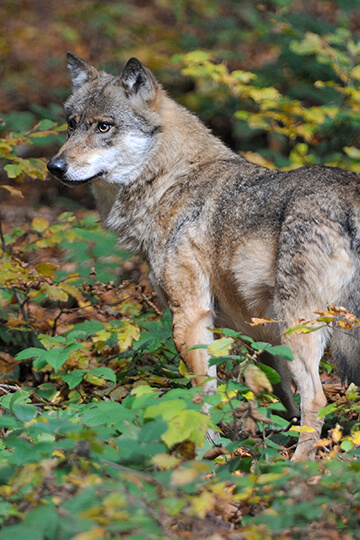

NO to more relaxed wolf shooting: let us all take part in the public consultation!
A new draft decree against wolves aimed at further relaxing (yes, it’s possible) the use of lethal shooting and amending the decree of February 21, 2024 is currently out for public consultation.
On the menu: unbridled freedom granted to lieutenants of louveterie and pests and the government’s obstinate bad faith regarding the “non-protectability” of bovine and equine herds.
Below, we detail the arguments you can use to denounce these delirious and deadly changes. Oppose by taking part in the online public consultation!
At a time when wolf populations are stagnating in France, the perpetual relaxation of the policy of culling wolves poses a real threat to their conservation status. Alas, a new draft decree amending that of February 21, 2024 aims to take an even harder line against them.
The announcement of the wolf population estimate in December 2024 confirmed that the methods used to implement their “management” in no way met the objectives of reducing predation. Indeed, since 2017, while the lupine population has been growing strongly, the number of predations attributed to it has stabilized. There is therefore no link between the number of wolves and the number of attacks, but that doesn’t matter, because the State wants to please those who want to see them disappear, despite the fact that 82% of French people consider that canids play a key role in the balance of the ecosystem.
Such is the perfidy of this so-called ministry of “Ecological” Transition that it didn’t even wait for the opinion of the French Nature protection national council (CNPN) on the draft decree (unfavorable, it goes without saying) to be published and accessible to all before unveiling its appalling “draft”, which, like its predecessors, is technically and scientifically unfounded. This clearly deprived the public of an opportunity to apprehend the consequences of these changes on biodiversity.
The government’s hypocrisy on the “non-protectability” of cow and horse herds
Despite positive feedback from other countries, the French State is once again claiming loud and clear that cows and horses (what about donkeys, by the way?) cannot be protected.
The administration still believes that, to date, there is no effective protection standard for these animals. And yet:
- It is up to them to create such a reference system.
- The effectiveness of most of the protection measures implemented for this type of herd has been proven in other European countries exposed to wolf predation.
- It follows from these observations that the failure to validate a protection scheme for these farm animals is not due to the absence of effective measures, but rather to the absence of any initiative to draw up such a reference framework.
The changes made to article 6 of the ministerial decree of February 21, 2024 are neither justified nor relevant:
- The decree does not provide a truly exhaustive definition or criteria for assessing the “means of reducing herd vulnerability” on which the departmental prefect must base his assessment of whether or not a herd is protectable.
- The text contains no details to differentiate between measures to reduce herd vulnerability and protection measures.
The decree’s problematic silence on the prefects’ actual assessment of the “non-protectability” of herds:
- The draft does not specify the form to be taken by the confirmation by the departmental prefect of the “steps taken to reduce the vulnerability” of bovine and equine herds.
- Nor is it announced which entity will carry out the “territorial” techno-economic analysis. The CNPN, in its notice of December 17, 2024, recommends that it be entrusted to independent organizations rather than to “agricultural organizations displaying out of principle the non-protegeability of bovine herds without any technical or scientific basis.”
- This lack of precision is all the more worrying as prefects have a nasty habit of not systematically (let’s be honest, rather rarely) providing proof of the technico-economic analysis leading them to consider a herd as non-protectable.
Lieutenants of louveterie and pests free to keep the bodies of killed wolves
When the French Biodiversity Agency (OFB) recovers the bodies of wolves, it is at least able to check that lethal shooting is carried out legally (on pastureland with a shooting permit, actual presence of a herd, shooting distances, protective measures in place at the time of shooting, etc.). However, the government wishes to entrust this crucial mission to the lieutenants of louveterie and pests, volunteers in contact with local hunters. On such a sensitive subject, it is irresponsible to give them this power, when we know that it could trigger conflicts of interests.
- To avoid any conflict of interests, the task of verifying the legality of shooting by recovering the remains should fall solely to the OFB.
- As the CNPN points out, the exact content of this task is not clarified. However, it is important not to forget that the use of information for scientific purposes must be reserved exclusively for the OFB.
In short, each new measure is less clear than the last, giving further grist to the mill of detractors of these magnificent animals.
Express your unwavering support for the wolves as soon as possible by taking part in the consultation – they need it badly!